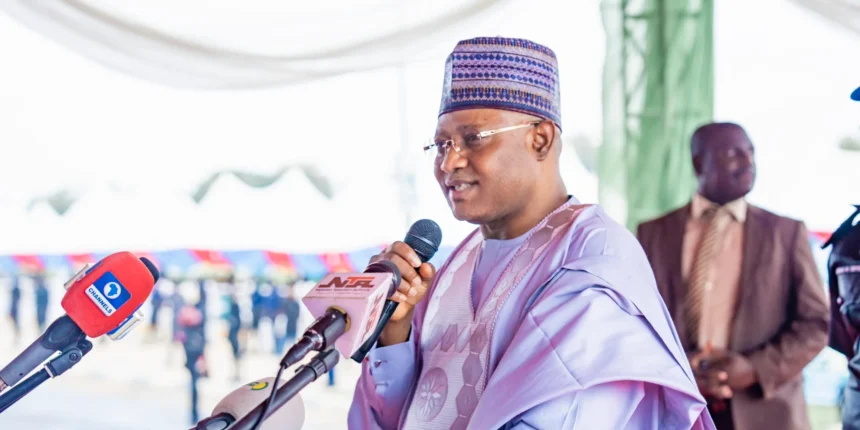The Governor of Kaduna State, Senator Uba Sani, has declared that his administration is committed to equitable development across the state, devoid of religious, ethnic, or political bias.
Speaking as a guest on Sunday Politics, a programme on Channels Television, the governor revealed three core measures undertaken since he assumed office in May 2023 to address the state’s long-standing security challenges.
He said the imbalance in development, coupled with the politics of religion and ethnicity, had polarized Kaduna and enabled anti-societal elements to exploit divisions and wreak havoc.
According to him, “60 to 65 percent of our people are financially excluded. Many of these people are in the northern part of Nigeria, particularly in the northwest. And because of this problem of insecurity, which is largely an economic issue breeding poverty and unemployment… our people can easily be recruited by these bandits.”
While stressing that efforts to end insecurity are ongoing, Uba Sani said the incidents have significantly dropped under his leadership, owing to deliberate policies aimed at inclusive governance.
“When I was elected on May 29th, I gathered everyone after we left the stadium. I made it clear to everyone in Kaduna, I will not look at Kaduna concerning anything to do with religious affiliation, political affiliation, or ethnic affiliation,” he said.
“As a leader, I was elected to be fair to everyone, irrespective of party affiliation, religion, or ethnicity. I told everyone that it is all about governance, it is not about politics anymore, and we wanted development to every part of Kaduna State. I will be fair to everyone.”
The governor emphasized that bridging the economic gap among communities has helped reduce tension and provided a sense of belonging to the people.
“We must look at the drivers and symptoms [of insecurity]. What are these drivers and symptoms?” he asked. “We have to address the gap in terms of prosperity between our people who are living in the urban area and those in the rural areas. Now what I did was very simple. We sat down, we looked at the infrastructure deficit.”
He noted that, historically, Kaduna Central received the most attention, but since his assumption of office, his government has directed development towards underserved areas like Southern Kaduna.
“I realized there were a lot of social deficits. And I made it clear… that we would look at local governments that have issues of infrastructure and focus on them. No politics, no religion, it’s about governance. Today I am happy that we are taking development to every part of Kaduna State.”
Uba Sani also stated that his administration actively engages with traditional rulers and religious leaders to ensure widespread communication and unity.
“We are on the same page with our leaders, traditional rulers. I attend most of these activities, both in the mosques and in the church,” he said.
He cited education as another critical area receiving urgent attention.
“There was the issue of out-of-school children. When I came in as the governor of Kaduna State, I can tell you over 350,000 of our people were out of school… Today we are addressing the problem gradually.”
Referring to data from UNICEF and discussions with the World Bank, he said northern Nigeria previously accounted for 70 percent of out-of-school children nationwide, a figure that has increased to 80 percent by 2023. However, he expressed optimism that the interventions being put in place were yielding results.
“This problem did not start two years ago. It started many years back because we were docile.”
Governor Uba Sani also attributed the regional support for President Bola Tinubu to the administration’s visible infrastructural interventions and human capital development in the North West.
“I can tell you also that, yes, we are happy because of the infrastructural intervention we are having here in the North West,” he said.
“If you look at it critically, you will agree with me that a lot of intervention is going on in the North Western Nigeria. And simply because we are determined to push Mr. President to address most of these issues that affect our people. We cannot do it if we don’t sit down as a team collectively.”
ALSO READ FROM NIGERIAN TRIBUNE
WATCH TOP VIDEOS FROM NIGERIAN TRIBUNE TV
- Let’s Talk About SELF-AWARENESS
- Is Your Confidence Mistaken for Pride? Let’s talk about it
- Is Etiquette About Perfection…Or Just Not Being Rude?
- Top Psychologist Reveal 3 Signs You’re Struggling With Imposter Syndrome
- Do You Pick Up Work-Related Calls at Midnight or Never? Let’s Talk About Boundaries







